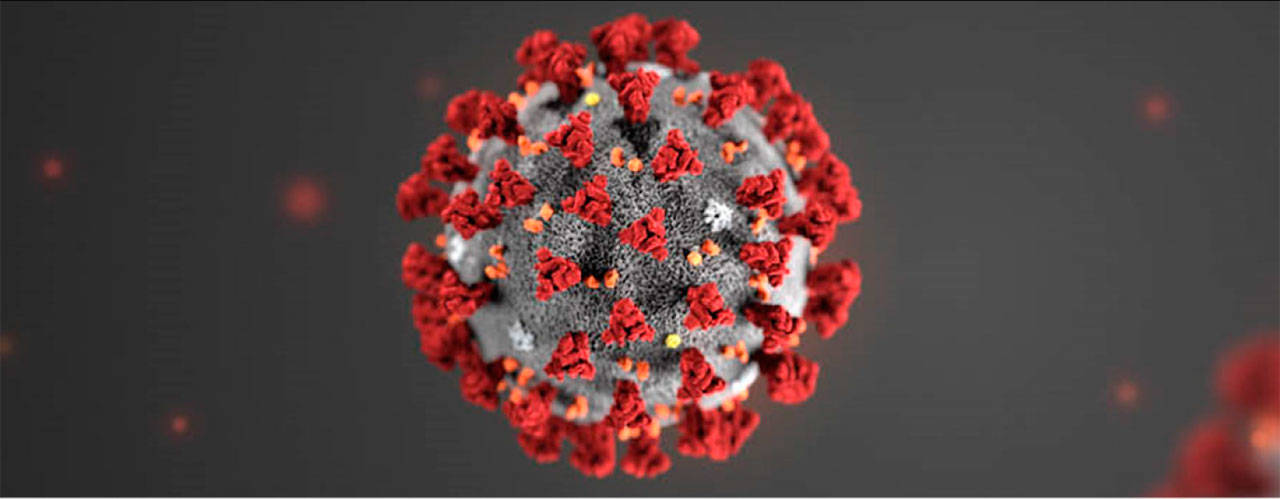The Bainbridge Island Review site has lifted the paywall on this developing story to provide readers with critical information. To support vital reporting such as this, please consider a digital subscription (https://www.bainbridgereview.com/subscribe/).
Though information on the 2019 novel coronavirus (COVID-19) may seem to change on a daily basis, the basics of the virus — and what steps to take to stay safe — are well-documented. Here’s an overview of the COVID-19 threat.
What is coronavirus?
According to the World Health Organization, coronaviruses are a large family of viruses that cause illness ranging from the common cold to more severe diseases such as Middle East Respiratory Syndrome and Severe Acute Respiratory Syndrome. A novel coronavirus, such as COVID-19, is a new strain that has not been previously identified in humans.
Coronaviruses are zoonotic, meaning they are transmitted between animals and people. Several known coronaviruses are circulating in animals that have not yet infected humans.
What are the symptoms?
The most common symptoms of COVID-19 are fever, tiredness, and dry cough. Some patients may have aches and pains, nasal congestion, runny nose, sore throat or diarrhea. These symptoms are usually mild and begin gradually.
Some people become infected but don’t develop any symptoms and don’t feel unwell. The estimated “incubation period” (the time between catching the virus and beginning to have symptoms of the disease) for COVID-19 range from one to 14 days, with symptoms most commonly appearing at around five days.
Most people (about 80 percent) recover from the disease without needing special treatment.
Around one out of every six people who gets COVID-19 becomes seriously ill and develops difficulty breathing. Older people, and those with underlying medical problems like high blood pressure, heart problems or diabetes, are more likely to develop serious illness.
People with fever, cough and difficulty breathing should seek medical attention.
How is COVID-19 spread?
According to the Washington State Department of Health, COVID-19 is most commonly spread from an infected person to others through:
The air by coughing and sneezing;
Close personal contact, such as touching or shaking hands;
Touching an object or surface with the virus on it, then touching your mouth, nose, or eyes before washing your hands; and
Rarely, fecal contamination with coronavirus present.
How can people protect themselves?
There are steps people should take to reduce their risk of getting and spreading any viral respiratory infections. These include:
Wash your hands often with soap and water for at least 20 seconds. Use an alcohol-based hand sanitizer that contains at least 60 percent alcohol if soap and water are not available.
Avoid touching your eyes, nose, or mouth with unwashed hands.
Avoid close contact with people who are sick.
Cover your mouth and nose with a tissue when you cough or sneeze, then throw the tissue in the trash and wash your hands.
Clean and disinfect objects and surfaces.
Stay at home and away from others if you are feeling ill.
Stay away from people who are sick (at least 6 feet).
Reconsider travel and being in crowded places if at all possible.
What is the treatment?
There are no specific treatments for illnesses caused by human coronaviruses. Most people with common human coronavirus illness will recover on their own.
According to the World Health Organization, some western, traditional or home remedies may provide comfort and alleviate symptoms of COVID-19, but there is no evidence that current medicine can prevent or cure the disease.
Officials do not recommend self-medication with any medicines, including antibiotics, as a prevention or cure for COVID-19. However, there are several ongoing clinical trials that include both western and traditional medicines.
Should I wear a mask when I go out in public?
The Washington State Health Department is not recommending that people wear masks when they are in public.
Masks can be useful in some settings to prevent someone who has a respiratory illness from spreading it to others. That’s why officials recommend that people who are sick put a mask on if they are waiting in a clinic.
The Washington State Department of Health has set up a call center to respond to public questions on the 2019 novel coronavirus outbreak (COVID-19).
People who have questions about what is happening in Washington, how the virus is spread, and what to do if you have symptoms, can call 1-800-525-0127 and press #.



